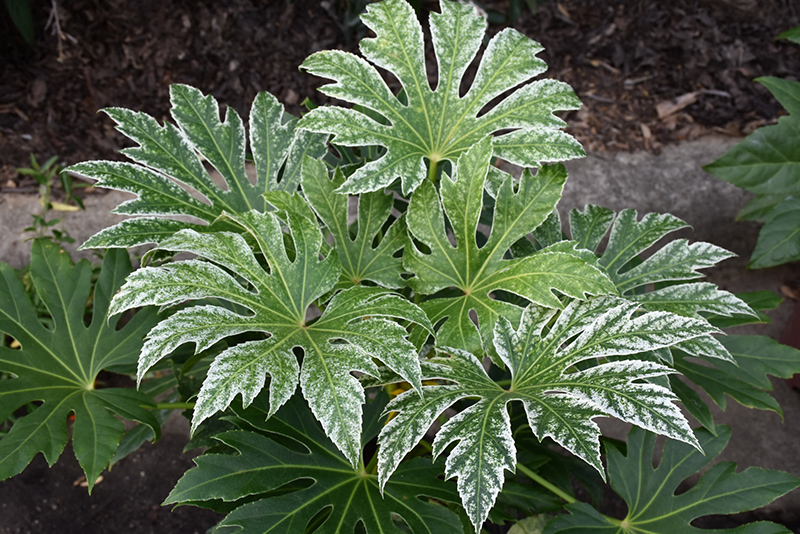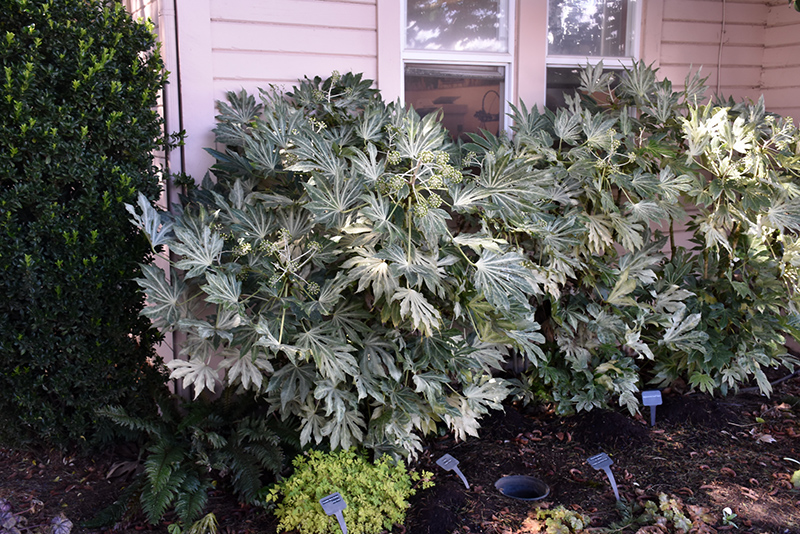Spider's Web Japanese Fatsia
Fatsia japonica 'Spider's Web'
Height: 10 feet
Spread: 10 feet
Sunlight:
![]()
![]()
Hardiness Zone: 7b
Description:
This stunning plant has huge palmate dark green leaves that are speckled with white as its principle attraction; perfect for creating a tropical look in the garden; it takes about 3 years for it to show speckling so be patient
Ornamental Features
Spider's Web Japanese Fatsia features showy clusters of white pincushion flowers rising above the foliage in mid fall. It has attractive white-spotted green foliage. The large glossy lobed palmate leaves are highly ornamental and remain green throughout the winter.
Landscape Attributes
Spider's Web Japanese Fatsia is a multi-stemmed evergreen shrub with an upright spreading habit of growth. Its average texture blends into the landscape, but can be balanced by one or two finer or coarser trees or shrubs for an effective composition.
This shrub will require occasional maintenance and upkeep, and is best pruned in late winter once the threat of extreme cold has passed. Gardeners should be aware of the following characteristic(s) that may warrant special consideration;
- Suckering
Spider's Web Japanese Fatsia is recommended for the following landscape applications;
- Accent
- Mass Planting
- Hedges/Screening
- General Garden Use
Planting & Growing
Spider's Web Japanese Fatsia will grow to be about 10 feet tall at maturity, with a spread of 10 feet. It has a low canopy, and is suitable for planting under power lines. It grows at a medium rate, and under ideal conditions can be expected to live for 40 years or more.
This shrub does best in partial shade to full shade. Keep it well away from hot, dry locations that receive direct afternoon sun or which get reflected sunlight, such as against the south side of a white wall. It does best in average to evenly moist conditions, but will not tolerate standing water. It may require supplemental watering during periods of drought or extended heat. It is not particular as to soil type or pH. It is highly tolerant of urban pollution and will even thrive in inner city environments. This is a selected variety of a species not originally from North America.


